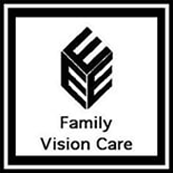Protect Your Vision: Early Detection and Prevention of Glaucoma
Protect Your Vision: Early Detection and Prevention of Glaucoma
.png)
What if protecting your vision could be as simple as scheduling an eye exam?
Glaucoma, often called the “silent thief of sight,” is an eye condition that can develop without noticeable symptoms until significant vision loss occurs. It’s a leading cause of irreversible blindness worldwide, but the good news is that early detection can make all the difference.
January is Glaucoma Awareness Month, a time to shine a light on this often-overlooked condition and empower you to protect your vision.
Glaucoma occurs when damage to the optic nerve—often caused by increased pressure in the eye—leads to gradual vision loss. While it can affect anyone, certain factors increase your risk. If you're over 60 or someone living with diabetes or a family history of glaucoma, you may have a higher chance of developing the disease.
In this article, we’ll explore the importance of early detection in glaucoma management, the symptoms to watch for, and practical steps you can take to protect your eyes from this condition.
The Importance of Early Detection in Glaucoma Management
Early detection is the most effective approach for preserving your vision when it comes to glaucoma. This condition often progresses silently, but regular eye exams can catch subtle changes—such as elevated eye pressure or early optic nerve damage—before they lead to significant vision loss.
Detecting glaucoma early allows for a wider range of effective treatment options, including prescription eye drops, laser treatments, or surgery. These interventions can slow or even halt further damage, making timely diagnosis critical to long-term eye health.
Routine monitoring of eye pressure and optic nerve health is essential for managing glaucoma and preventing complications. Without early intervention, the condition can progress to irreversible vision impairment, but proactive care can help you maintain your sight and quality of life.
By prioritizing regular eye exams, you take a vital step in managing your eye health. Catching glaucoma in its early stages doesn’t just prevent vision loss—it empowers you with options to protect your eyes for years to come.
Symptoms of Glaucoma
Glaucoma often progresses unnoticed in its early stages, making it essential to recognize potential warning signs. Understanding these symptoms can help you respond quickly to protect your vision.
Early Symptoms
In the beginning, glaucoma may not cause any symptoms at all. This is why regular eye exams are so important—they can detect the condition before it affects your vision.
Progressive Symptoms
As glaucoma advances, you may notice signs such as:
- Gradual loss of peripheral vision: This often happens first and can feel like tunnel vision as it progresses.
- Blurred vision: Objects may appear fuzzy or out of focus.
- Halos around lights: You might see rings of light around lamps or headlights.
Acute Symptoms
In rare cases, glaucoma can develop suddenly, causing:
- Severe eye pain
- Nausea and vomiting
- Sudden vision loss
- Redness in the eye
How to Protect Your Eyes from Glaucoma
Taking proactive steps can help safeguard your vision and reduce the risk of developing glaucoma.
Here are four important ways to protect your eyes:
1. Maintain a Healthy Lifestyle
A balanced diet rich in leafy greens, fruits, and omega-3 fatty acids can support eye health. Regular physical activity also helps maintain healthy blood pressure and circulation, which can reduce eye pressure.
2. Protect Your Eyes from Injury
Wear protective eyewear during activities that could result in eye trauma, such as sports or home improvement projects. Eye injuries can increase the risk of developing glaucoma.
3. Monitor Your Health
Manage underlying conditions like diabetes or hypertension, as these can elevate the risk of glaucoma. Regular checkups with your primary care provider can help keep these conditions under control.
4. Be Consistent with Eye Care
Follow your eye doctor’s recommendations and maintain a schedule of routine eye exams. By staying vigilant, you can take control of your eye health and reduce the chances of glaucoma-related complications.
Prevent Glaucoma with Oxford Family Vision Care
Protecting your vision starts with regular eye care and knowing what to watch for. Glaucoma is just one of many eye diseases that can cause permanent damage if left untreated but catching it early can make all the difference.
At Oxford Family Vision Care, we’re here to help you stay on top of your eye health.
Learn more about other common eye conditions by reading our blog on Different Types of Eye Diseases. Understanding these conditions can help you take steps to prevent serious vision problems in the future.
Don’t wait until it’s too late—schedule your next eye exam with us today. Let’s work together to keep your eyes healthy and your vision clear.
Located in Oxford, Ohio, right by Miami University, Dr. Jeffrey Collins is here to help improve your vision and has been providing excellent vision care for families all over Butler County since 1989.
Follow Oxford Family Vision Care on Facebook and Twitter for more eye health tips!
Happy with the difference we have made for your eye health? Leave us a five-star review here!
